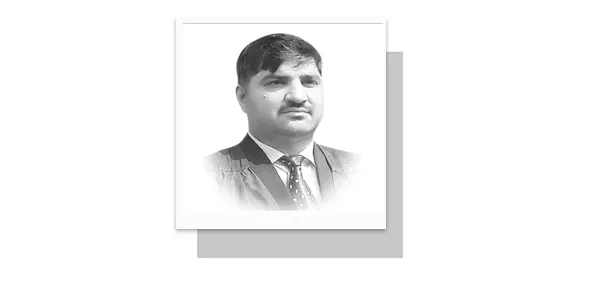THE political and constitutional history of Pakistan is rife with institutional clashes across different eras. At times, these clashes occurred between Parliament and the Executive, while at other times, they involved power struggles between the Presidential and Premier offices, resulting in the dissolution of elected National Assemblies and the dismissal of elected governments through the controversial invocation of Article 58 (2) (B) by the President of Pakistan, and Article 112 (2) (B) by Governors, as outlined in the 1973 Constitution of Pakistan. Similarly, conflicts between the Federal Executive and the Federal Judiciary have also been observed. Such institutional clashes have yielded nothing but political and economic instability within the country. Additionally, the Civil-Military relationship has consistently remained a contentious topic, sparking debates among various circles both domestically and internationally. However, effective leadership within these institutions and visionary approaches aimed at advancing national progress and prosperity are crucial.
Khyber Pakhtunkhwa is a strategic gateway to the security of Pakistan. The people of Pakistan since independence fell prey of war, conflicts, insurgency, militancy and terrorism. Cold War, Post-Cold War and Post 9/11 incident and now in post-US withdrawal from Afghanistan, the people of Khyber-Pakhtunkhwa and Balochistan especially and of Pakistan generally have been faced with security threats. In such security dynamics, the people of Pakistan need a holistic security approach to counter such threats and to restore peace and ultimately economic stability and development. In this holy month of Ramadan, several terrorist attacks claimed the lives of civilians and our security forces especially Police Jawans and officers and created mourn in their respective families. Kids lost their fathers, wives lost their spouses and parents lost their children. They will mourn on the coming Eid-Ul-Fitr rather to celebrate it with pomp and show.
In prevailing of such uncertainty and bereavement ambiance, the civil leadership under dynamic Chief Minister Ali Amin Gandapur and Military leadership under Corps Commander Peshawar Lt Gen Sardar Azhar Hayat are considerate of security challenges in Khyber Pakhtunkhwa. The people of Khyber Pakhtunkhwa gave mandate to current provincial government through a constitutional electoral process. It is therefore accountable to its electors for all kinds of security and ensuring a peaceful environment in the province. Similarly, the civil and military forces are equally responsible for security of their people. The incumbent Corps Commander Peshawar is familiar with the Pakhtoon Code of Conduct including the norm of hospitality. He arranged an Iftar Party for the new Provincial Chief Minister and his cabinet members in the Corps Headquarter Peshawar. This was a goodwill gesture on the part of military leadership. The Provincial Government Chief and his team were given comprehensive briefing about prevailing security situation in the Province. It is a positive development that the civil administration is being taken on board on security issues because it is the ultimate responsibility of provincial government to frame policy in this connection. Unfortunately, some elements started toxic propaganda on social and electronic media against civil and military leadership and their gathering; and misconstrued that KP Provincial Cabinet held its meeting in the Corps Headquarter. It is a general military norm that military leadership gives a brief to visitors to its office. Corps Headquarter Peshawar, Frontier Corps, Frontier Constabulary, KP Police and other security intelligence agencies are at forefront against war on terrorism and current wave of militancy launched by TTP. It is the professional responsibility of each security agency to keep abreast of the Provincial Government Representatives about security situation in the province. The gruesome attacks on Chinese engineers in Shangla, KP and martyrdom of DSP Gul Muhammad and Constable Nasim Gul in Manjiwala, Lakki Marwat District and other terrorist incidents are eyebrow raising and require a war-footing response. The Khyber-Pakhtunkhwa Police is only looking up the ordinary crimes in a society but also engaged in countering terrorists who are equipped more modern weapons. Likewise, the Corps Headquarter Peshawar shouldered the responsibility of both internal and external security of the country. The need of the hour is that all the stakeholders and general public must extend unconditional support to their security forces to counter the existential security threats in all their manifestations and to refrain from unnecessary poisonous propaganda for political gains or other ulterior motives against the Civil Administration and military leadership. In short, this pragmatic approach of civil and military leadership to security in KP is highly praiseworthy.
—The writer is Chairman, Department of Political Science, Islamia College, Peshawar.
Email: amir@icp.edu.pk









